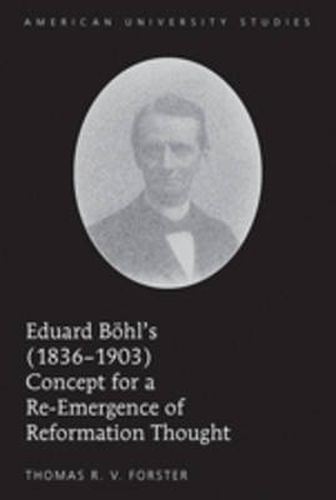Readings Newsletter
Become a Readings Member to make your shopping experience even easier.
Sign in or sign up for free!
You’re not far away from qualifying for FREE standard shipping within Australia
You’ve qualified for FREE standard shipping within Australia
The cart is loading…






This title is printed to order. This book may have been self-published. If so, we cannot guarantee the quality of the content. In the main most books will have gone through the editing process however some may not. We therefore suggest that you be aware of this before ordering this book. If in doubt check either the author or publisher’s details as we are unable to accept any returns unless they are faulty. Please contact us if you have any questions.
Nineteenth-century continental theology is usually associated with the classic liberal Protestantism of Schleiermacher and Ritschl. On the other side of the theological divide there was the Dutch Neo-Calvinist school, a sharp reaction to liberalism. Yet the theological realm of that era also included the Kohlbrugge school, which founded its theological method upon the Older Testament and re-read and applied the documents of the Reformation for its time. The most important representative of this school is Eduard Boehl (1836-1903), who advocated a return to Reformed doctrine and church order and a strong Christological reading of the Old Testament. He also rejected historical criticism, for which he was subjected to censure. Moving into the field of systematics, Boehl suggested a new reading of the image of God . His peculiar understanding of the imago Dei was also his biggest contribution to theological anthropology; this in turn influenced his views on Christology and salvation. Although Boehl saw himself as a Reformed theologian, he would cross swords with those who claimed the same for themselves. Boehl especially valued the teachings of Martin Luther, whom he held as a better exegete than the Genevan Reformer. Boehl’s theology is best captured as Reformation theology within the context of the Kohlbrugge school. Although the names of Luther and Calvin are well known in church history, and to a lesser degree, so is Kohlbrugge’s, Boehl’s is not. This historico-theological account of Boehl’s life and work sheds some rare but much-needed shafts of light on a theologian who has wrongfully fallen into oblivion.
$9.00 standard shipping within Australia
FREE standard shipping within Australia for orders over $100.00
Express & International shipping calculated at checkout
This title is printed to order. This book may have been self-published. If so, we cannot guarantee the quality of the content. In the main most books will have gone through the editing process however some may not. We therefore suggest that you be aware of this before ordering this book. If in doubt check either the author or publisher’s details as we are unable to accept any returns unless they are faulty. Please contact us if you have any questions.
Nineteenth-century continental theology is usually associated with the classic liberal Protestantism of Schleiermacher and Ritschl. On the other side of the theological divide there was the Dutch Neo-Calvinist school, a sharp reaction to liberalism. Yet the theological realm of that era also included the Kohlbrugge school, which founded its theological method upon the Older Testament and re-read and applied the documents of the Reformation for its time. The most important representative of this school is Eduard Boehl (1836-1903), who advocated a return to Reformed doctrine and church order and a strong Christological reading of the Old Testament. He also rejected historical criticism, for which he was subjected to censure. Moving into the field of systematics, Boehl suggested a new reading of the image of God . His peculiar understanding of the imago Dei was also his biggest contribution to theological anthropology; this in turn influenced his views on Christology and salvation. Although Boehl saw himself as a Reformed theologian, he would cross swords with those who claimed the same for themselves. Boehl especially valued the teachings of Martin Luther, whom he held as a better exegete than the Genevan Reformer. Boehl’s theology is best captured as Reformation theology within the context of the Kohlbrugge school. Although the names of Luther and Calvin are well known in church history, and to a lesser degree, so is Kohlbrugge’s, Boehl’s is not. This historico-theological account of Boehl’s life and work sheds some rare but much-needed shafts of light on a theologian who has wrongfully fallen into oblivion.